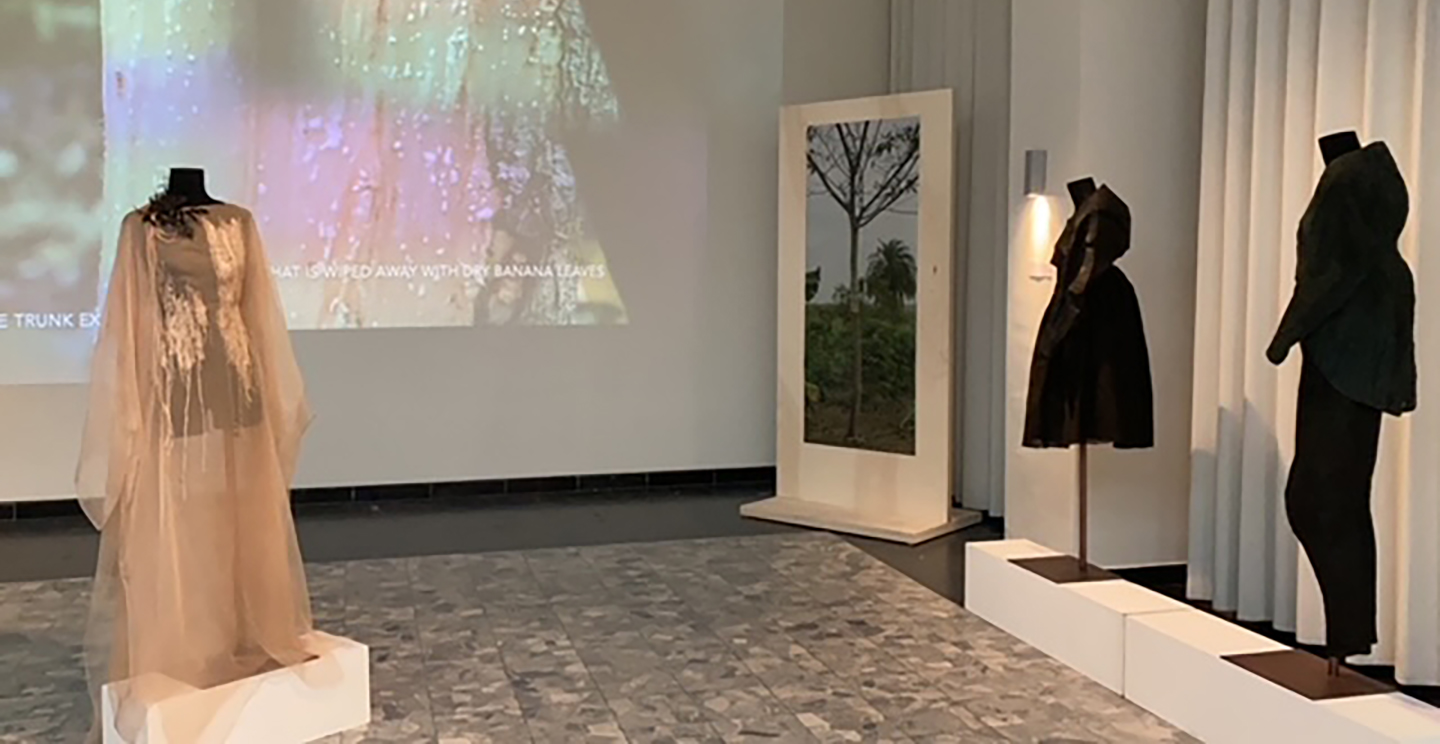A multidisciplinary group of researchers, artists, environmentalists, farmers, and fashion and design practitioners in the UK, US and Uganda is investigating the properties and potential of a radically indigenous and endangered textile: Ugandan bark cloth, produced from the mutuba tree (ficus natalensis) and part of the Intangible Cultural Heritage of Humanity. Our research methods include fieldwork in Uganda; natural dye experiments; the development and testing of a biophilic design strategy; textile laboratory testing of strength, wear, water and abrasion resistance, drape, shape and fit; scientific laboratory testing of the unique antimicrobial properties of bark cloth; and the exploration of bark cloth in woven textiles.
Fashion research has acted as mediator in connecting our diverse disciplines, experiences and interests, leading us to unforeseen discoveries which may provide significant benefits to peoples and planet. We have come to understand and document the central role of the mutuba tree in restorative, agroforestry systems - the slow and wholly regenerative processes around tending mutuba trees, and harvesting and making bark cloth in Uganda; we have demonstrated that bark cloth is able effectively to kill MRSA bacteria, at a time when it has become resistant to antibiotics; we have created natural dyes that are not only beautiful and sustainable, but which may confer bark cloth’s antibacterial properties to other materials; we have developed a holistic design strategy that synergises the specific characteristics of bark cloth with the body’s biomechanical requirements; and we have demonstrated its potential as a truly restorative, slow fashion textile through the creation of a series of luxury fashion garments. The project is dynamic, evolving in response to new knowledge as it is generated through collaborative research: we have only just begun.

In October 2021, our creative practice was selected to form part of an exhibition at the Royal Academy of Fine Arts in Antwerp called Responsible Fashion: Can Fashion Save the World. The exhibition showcased films and garments produced through a research that demonstrated an alternative approach to fashion that is feeling its way to argue the importance of the natural, the human and the hand made, and offers a conscious challenge to technological fundamentalism. Our work asks “what if” questions, around slowing down, reconnecting with the natural world and learning with humility from traditional knowledge systems. As a passionate proponent of ecological design, I developed garments in naturally dyed bark cloth whose curved seamlines formed bold and distinctive silhouettes while responding to the technical limitations of the cloth and which reflected biophilic design principles. While Karen created a luxurious, diaphanous, multi-layered dress whose silk and embroidery threads had been dyed with bark cloth waste as part of the zero waste approach adopted by the group. All the garments are designed to be compostable.
Next steps of our research include testing different species of mutuba to identify, measure and compare their anti-microbial properties; conducting wear tests with human participants to assess any benefits to their mental and physical wellbeing from wearing bark cloth; more testing of natural dye from bark cloth waste materials; the development and testing of biocomposites using bark cloth scraps; and biolaminates for bark cloth to improve its water resistance and wear; the creation of further propositional garments that explore the potential contribution of bark cloth to responsible fashion. We hope that our work will support the continuation of bark cloth making in Bukomansimbi and across Uganda by raising awareness of its unique properties and, therefore, will sustainably improve its market to preserve this important indigenous knowledge system.
Kirsten Scott,
Programme Leader for Postgraduate Fashion, London

